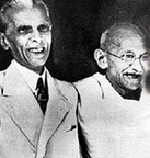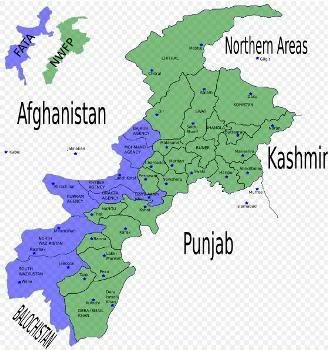Adil Najam
Today is August 15. India’s Independence Day.
ATP sends all Indians sincere and heartfelt Independence Day greetings and the very best wishes.
Here at All Things Pakistan, we have carried a special post on this day every year.



Very consciously, the posts we have carried on this day over the last three years form a trilogy of imagery: our post in 2006 sought to revisit our imagery of our past (here), in 2007 we highlighted the changing imagery of India-Pakistan relations in the present (here), and in 2008 we called upon our readers to re-imagine our visions of the future (here).
We would urge our readers to please revisit these posts if you have a few moments before you read on (click on the three images above, or here, here and here).
Read Full Post
Owais Mughal
 Founding Editor of Pakistaniat.com, our very own Dr. Adil Najam has just been awarded the Sitara-i-Imtiaz by the government of Pakistan for his contribution and public service in the field of environment and development policy.
Founding Editor of Pakistaniat.com, our very own Dr. Adil Najam has just been awarded the Sitara-i-Imtiaz by the government of Pakistan for his contribution and public service in the field of environment and development policy.
Adil is known to all of us as the founder of this blog, but his full time work is as the Frederick S. Pardee Professor of Global Public Policy and the Director of the Pardee Center for the Study of the Longer-Range Future at Boston University. At Boston University he also serves as a Professor of International Relations and of Geography and Environment.

Read Full Post
Jauhar Ismail
 On the eve of Pakistan’s 63rd independence day, President Asif Ali Zardari announced major reforms in the political, administrative and judicial make up of the Federally Administrated Tribal Areas (FATA) – a combination of seven semi-autonomous tribal agencies bordering Afghanistan.
On the eve of Pakistan’s 63rd independence day, President Asif Ali Zardari announced major reforms in the political, administrative and judicial make up of the Federally Administrated Tribal Areas (FATA) – a combination of seven semi-autonomous tribal agencies bordering Afghanistan.
It should be noted that as per the constitution of Pakistan, FATA is under the direct control of the President of Pakistan who exercises his authority through a “Political Agent” for each of the seven agencies. For all intent and purpose, a political agent can be considered as a mini-viceroy who exercises vast powers over his agency and is not answerable to any judicial oversight. The writ of the Supreme court of Pakistan does not extend to FATA which is governed by the colonial era Frontier Crimes Regulation (FCR) that allows the political agent to imprison people without any trial for an indefinite period of time. Moreover the people of FATA are not allowed to enjoin the democratic process enjoyed by their fellow citizens as none of the Pakistani political parties are allowed to exist in FATA.
Read Full Post






 On the eve of Pakistan’s 63rd independence day, President Asif Ali Zardari announced major reforms in the political, administrative and judicial make up of the Federally Administrated Tribal Areas (FATA) – a combination of seven semi-autonomous tribal agencies bordering Afghanistan.
On the eve of Pakistan’s 63rd independence day, President Asif Ali Zardari announced major reforms in the political, administrative and judicial make up of the Federally Administrated Tribal Areas (FATA) – a combination of seven semi-autonomous tribal agencies bordering Afghanistan. 






















































